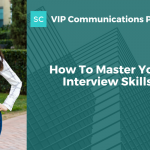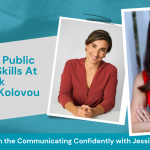How To Handle Tough Media Questions
Just as much as you would prepare your talking points for an interview, you also have to anticipate tough questions.
Tough questions can mean several things such as:
- Holding you accountable – like asking you to prove your point.
- The reporter is playing devil’s advocate.
Either way, you should always anticipate tough questions, because, from the reporter’s point of view, they have to do their due diligence covering every side and perspective.
Below are two strategies you can use to handle tough media questions.
1. Forecasting
Being prepared for tough media questions will help you feel confident during the interview. Depending on the type of interview, the reporter may interview you as well as those opposing you.
In cases like these, you need to be prepared by forecasting what they could bring up that may contradict what you said.
Forecasting is thinking ahead to what might be asked during your interview. These questions shouldn’t come as a surprise because chances are, you, and your organization, have already thought through these questions.
![]() For example, suppose you’re being interviewed about a new innovative product that is in direct competition with what is already on the market. In that case, one tough question an interviewer may ask is, “What makes you better than them?”
For example, suppose you’re being interviewed about a new innovative product that is in direct competition with what is already on the market. In that case, one tough question an interviewer may ask is, “What makes you better than them?”
So when it comes to figuring out your response, remember how you and your team responded by validating your product-market fit, and formulating your response to show you’ve already thought about this.
Being able to handle tough media questions requires preparation. When you think ahead to what might be asked, you will be better prepared during the interview.
2. Tone + Body Language
Tough questions can make you tense up. They can also make you take a more defensive tone of voice. Both of these things can make answering tough questions more difficult. According to LifeSize, most researchers agree that 70% of all communication is non-verbal.
As you prepare for your media interview, think about how your tone and body language impact your responses.
For example, let’s say the reporter is pointing out all of the weak points of your product. In your response, you need to think about how you can turn the conversation around.
The first thing you can do is notice your body language and tone of voice. This can be hard because it is not the first thing to come to mind. However, it is important. The key here is to avoid appearing defensive.
- If you begin raising your voice, or clearing your throat, it may signal to the reporter that you are uncomfortable. In fact, if you become shifty, the interviewer will notice they’ve touched on a pain point. This will alert them to keep pressing you, because they can tell something about it made you uncomfortable.
- If you notice your heart starting to pump quickly, take it as a cue to slow down and not react. In fact, as you are thinking, nod your head to give the perception you’re thinking. It’s okay to take your time answering the question. And give yourself a moment to pause.
![]() Being able to regulate your tone and body language will help you respond to tough questions without getting flustered.
Being able to regulate your tone and body language will help you respond to tough questions without getting flustered.
In the end, you should always expect tough questions when being interviewed. The key to success here is to be prepared. Anticipate what they may ask, and always end your statement with a positive point of view.
__
Whenever you’re ready, there are 3 ways we can help you:
- Discover your communications style so you know where to start. Over 4,000 people have found theirs here.
- Attend our monthly communication workshop to build communications confidence (new topics: public speaking, advocating for yourself, building credibility, etc) here.
- Get your brand in front of 43k+ people by sponsoring our newsletter or Soulcast Media | LIVE LinkedIn events [contact: hello@soulcastmedia.com]











